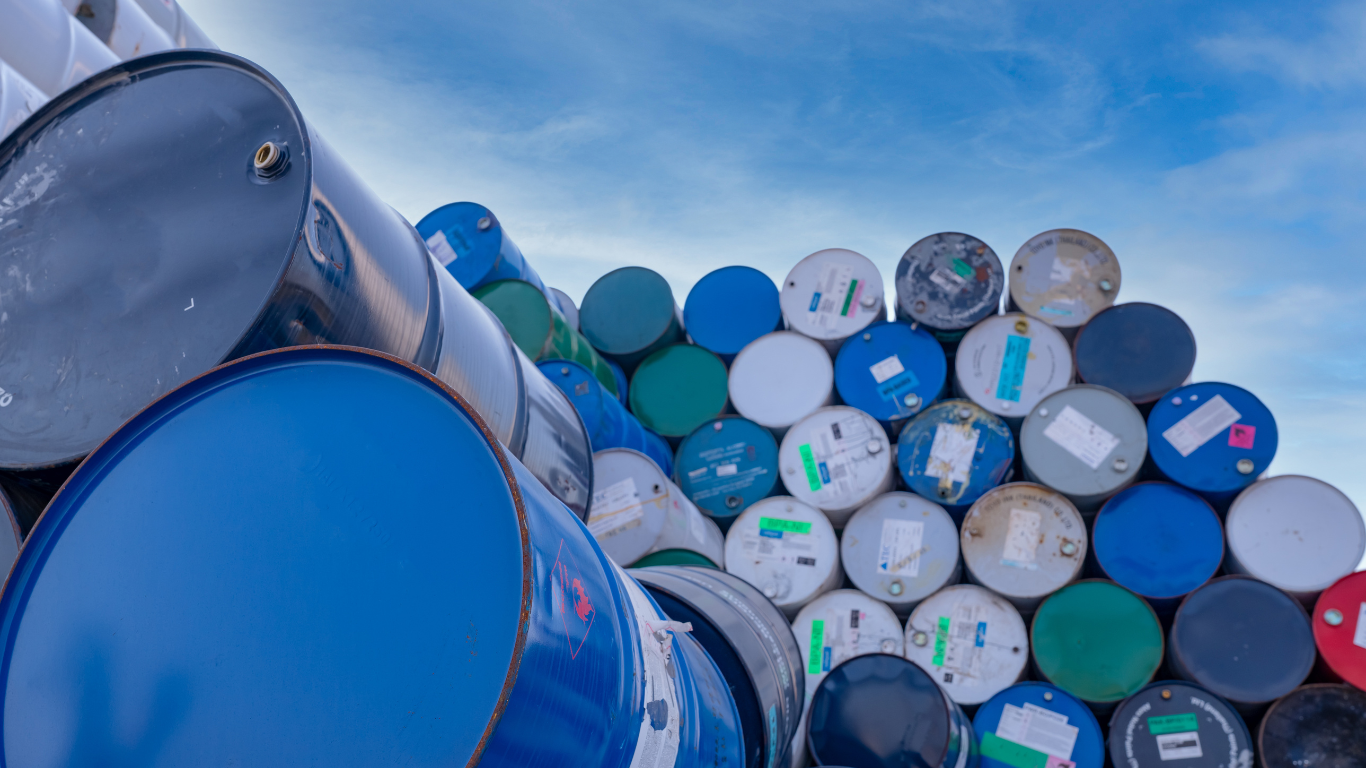
State law defines a substance as hazardous waste if it has the potential to cause or contribute to an increase in mortality or serious illness or if it poses a threat to human health or the environment when mismanaged. In simpler terms, a substance is regulated as hazardous waste if it is specifically listed as such in state regulations, is mixed with or derived from one of those listed wastes, or shows certain characteristics. If you observe a hazardous waste violation,
click here or call 866-633-4686. We produce
reports summarizing hazardous waste activity each year.
These characteristics include:
-
Ignitability: It can easily catch fire.
-
Corrosivity: It's a strong acid or other caustic substance.
-
Reactivity: It can be explosive or release toxic gases when mixed with water.
-
Toxicity: It can release certain toxic materials when subjected to a test that simulates landfill conditions.
Hazardous Waste Generators
If you generate hazardous waste in Maryland, you must follow certain rules. You must identify hazardous waste through testing or your knowledge of its characteristics, obtain an
EPA identification number before shipping waste off-site, and meet pre-transport requirements such as packaging, labeling, marking, and preparing manifests. You must also
report to the state if you generate or process hazardous waste and submit manifest reports when shipping waste for transport.
Storage and Disposal
Hazardous waste must be stored and disposed of safely to prevent harm to people and the environment. Waste can be stored on-site for up to 90 days without a
permit if managed in approved containers or tanks. Containers must be closed, labeled, and kept in good condition, and facilities must have emergency equipment and training to respond to leaks or spills. Long-term disposal must take place at approved treatment, storage, and disposal facilities. Records, including manifests and reports, must be kept for at least three years.
Transport
When moving hazardous waste, transporters and generators must comply with strict federal and state requirements. Only
licensed transporters may carry hazardous waste, and every shipment must be accompanied by a properly completed hazardous waste
manifest. Containers must be packaged, labeled, and marked according to U.S. Department of Transportation standards. Transporters must immediately respond to spills or releases and report them to the state, and waste must be delivered only to permitted facilities.
Radioactive Waste
State law requires organizations that handle radioactive substances, through activities like moving, treating, storing, or getting rid of them, to file an annual report on their low-level radioactive waste. This yearly report helps the Department track how much radioactive waste is produced and plan for its proper handling and disposal. It is due by March 1, covering the activities of the previous calendar year.
Facilities that accept low-level radioactive waste from other places have extra reporting duties and should contact the Department for additional forms. The completed report can be submitted by email or postal mail, and any questions can be directed to the Department's designated contact.
Low Level Radioactive Waste Report Form
Low Level Radioactive Waste Report Form Instructions
Public Comment and Key Sites
Comments on the proposed actions may be sent to RCE Supervisor, Maryland Department of the Environment, Solid Waste Program, 1800 Washington Blvd., STE 605, Baltimore, MD 21230-1719, by
email or by calling 410-537-3356.
These items are currently pending public comment:
Draft Pharmaceuticals Regulations have been published for regulated entities like healthcare facilities working to align with
federal standards set by the Environmental Protection Agency (EPA) to provide a more streamlined and clearer framework for managing hazardous pharmaceutical waste. This includes a prohibition on flushing certain hazardous waste pharmaceuticals down the drain. We have prepared
crosswalk and
roadmap documents to help understand the changes.
Triumvirate Environmental LLC has been granted a
permit to operate a hazardous waste transfer facility at its Carbon Avenue site in Baltimore. The company is authorized to move sealed containers of hazardous waste directly from one truck to another, allowing small loads collected from businesses to be combined into larger shipments for treatment, recycling, or disposal elsewhere. The permit allows up to 40,000 gallons of waste (about 800 drums) to be stored on-site for no more than 10 days, though the facility is not expected to routinely reach that limit. Key documents include our
fact sheet,
permit application and
public notice.